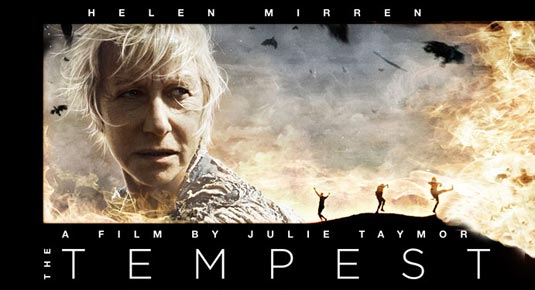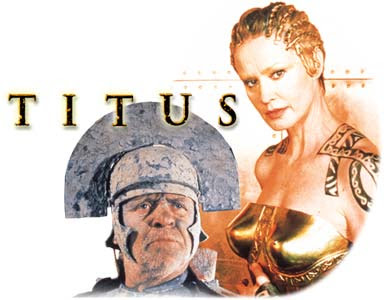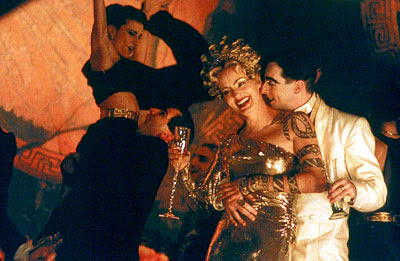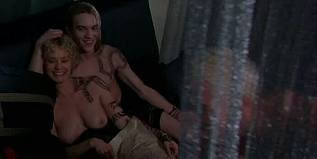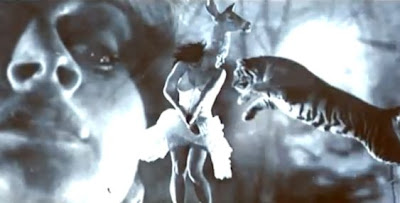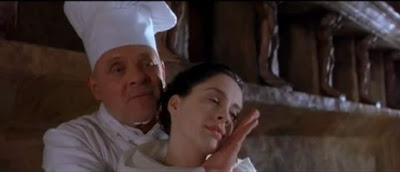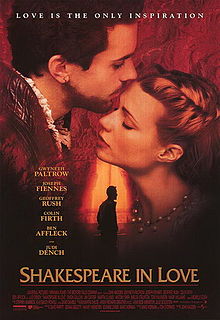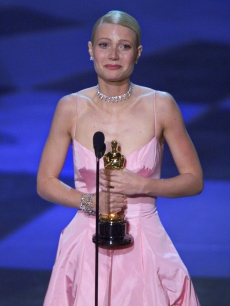This is a guest review by Leigh Kolb.
The ancient idea that men and women inhabit different spheres based on their biological makeup is rooted deeply in Western culture. In the Nineteenth Century, however, when the Victorian era dictated behavior and the Industrial Revolution changed work, scientists and civilians defined and embraced this idea of
True Womanhood. Men’s and women’s spheres were separate—his was public and political, hers was inside the home and maternal. This is certainly not an argument that has died, and one would be hard-pressed not to find the same rhetoric at houses of worship and houses of legislation today. Many representations of women in media reiterate this ideology.
Motherhood is firmly rooted in the feminine sphere—inside the womb to inside the nursery. In the critically acclaimed television drama Sons of Anarchy, the gendered spheres are clear and present. Sons of Anarchy is oftentimes dubbed “Hamlet on motorcycles” since the plot line bears a strong resemblance to Shakespeare’s Hamlet (which is an important note for feminist analysis, considering Shakespeare’s own subversive feminism). As in Hamlet, Sons of Anarchy’s audiences and critics often focus on the protagonist, the “ghost” of his father, his nefarious stepfather, and the men who surround him. The excitement of politics, public tension, violence, and man’s inner struggle always trumps the inner-workings of the home and child-rearing. The power is in the public sphere.
 |
| Gemma threatens Wendy. She makes it clear that no one will hurt her son or grandson. |
The Mothers of Anarchy, on the surface, have no control. In reality, they have all of the control.
The matriarch “old lady” (the endearing term club members give to their partners) of the California motorcycle club is Gemma (Katey Sagal). She is the Gertrude-inspired character who has married one of the original members of the club, after her husband was killed. Her first husband helped found the Sons of Anarchy motorcycle club after Gemma became pregnant with their son and wanted to settle in Charming, where her parents were from. She may not ride, but her instincts and desires steered the club from its inception. The town’s police chief refers to Gemma as “leaving Charming when she was sixteen and showing up 10 years later with a baby and a biker gang.”
This original group, which spawned numerous Sons of Anarchy chapters after its founding, is referred to as Sons of Anarchy Motorcycle Club Redwood Originals (SAMCRO).
 |
| Tara and Gemma together saved baby Abel’s life, and Jax, his father, holds him. |
In the pilot episode, there are explosions, murders, gun runs, back room decisions, and motorcycles tearing up the streets. Of course, one doesn’t need to analyze too much to see the clearly phallic representations of masculinity in motorcycles and firearms. It is also clear that the women in the episode are revolving around the hallmark of True Womanhood—motherhood.
Gemma’s son Jax (Charlie Hunnam) has a pregnant ex-wife, Wendy (Drea de Matteo). As Gemma is driving to check on her, Wendy is in the kitchen injecting herself with a syringe-full of meth. The camera pans out to a very pregnant Wendy with her hand on her belly, relaxed. This is a fallen mother. Gemma finds her in a pool of blood, curses at her, and rushes her to the hospital. At the hospital, Tara (Maggie Siff), a surgeon and Jax’s ex-girlfriend, is tending to Wendy and Abel, who was delivered via emergency c-section ten weeks premature. Immediately the audience is presented with the powerful mother and matriarch, the bad mother (and few things are worse in our society than a bad mother), and the professional mother, who is responsible for keeping Abel alive since his biological mother could not.
 |
| Gemma’s maternal instincts are fierce and stinging. |
These three pivotal female characters revolve around a baby, and they are portrayed inside—literally and figuratively. The women are inside when introduced to the audience—Gemma is in her car, Wendy is in her kitchen, and Tara is in the hospital. When Gemma wields her knowledge of and power over the club to Clay, they are in the bedroom. The male characters are largely outside—riding their bikes, working on cars, and scoping out new property.
Toward the end of the episode, the men of Sons of Anarchy are engaged in club warfare, and commit brutally violent crimes (involving guns, explosives, and vehicles) as they navigate the changing waters of their club’s purpose and see their territory shifting to guns and drugs.
 |
|
Tara and Jax have a son, Thomas, and they together raise him and Abel.
|
Spliced into this plotline are the scenes from the hospital. Gemma has slipped Wendy a syringe with an order to commit suicide (she puts the syringe in a Bible after they pray—religion and piety is also in the feminine sphere). Tara is operating on Abel, inside of him, and starts his heart after it stops.
The masculine sphere is powerful, aggressive, and largely superficial. The feminine sphere, while perceived as less important and less powerful, deals in matters much closer: giving life, manipulating life, and sustaining life. When Jax comes to the hospital to visit his son, he is beat up and bloodied from his duties outside. Tara tells him to clean himself up, and then he can see his son. Tara—who gave Abel his heartbeat, not Wendy—is in control. It’s simply a matter of time before she and Jax are in a relationship and she is clearly an old lady in training.
 |
| Gemma looks at an old photo of her and John, Jax’s father and the co-founder of SAMCRO. |
While the pilot episode can be examined by itself through a feminist lens, the entire series follows its women with the same watchful eye. What may sound like one-dimensional stereotypes in simple plot descriptions are actually nuanced female characters and plot lines.
Possibly the most obvious mother archetype in Western culture is the Virgin Mary. Sons of Anarchy does a commendable job of avoiding the virgin-whore dichotomy so prevalent in matters of femininity and motherhood. Gemma is a sexual creature and desires sex (one episode even deals with her battling vaginal dryness after menopause), but that isn’t problematic. The show manages to avoid the all-too-often inferred Oedipal nature of Hamlet and Gertrude in the Shakespeare original, showing that a woman can be sexual, and be a mother, and that’s OK.
In season two, Gemma is brutally raped by enemies of the club to divide and destroy SAMCRO. She is lured into the enemy’s hands when a young woman stops her on the road and begs her to check on her baby, who’s not breathing. Lured by her maternal instincts, Gemma rushes out of her car and into the woman’s van where there’s just a baby doll, and she’s knocked unconscious and taken to a warehouse where she’s assaulted. The way that she deals with the assault—secretive and ashamed, yet helped by Tara medically and emotionally—is painful and realistic. Tara was a victim of domestic violence, and the two come together not as victims, but as allies and survivors. When Gemma finally tells her family about the rape, they come together and are more united, not divided. As she explains the assault to Clay and Jax at the family dining table,
Patty Griffin’s “Mary” plays softly in the background, conjuring the image of that original suffering mother; however, she is not the pure and perfect image of virginity; she is real, damaged, and whole. This is the True Womanhood, not that of silence and submissiveness. In this depiction, it’s clear that Gemma gains and keeps control and is not the one being controlled.
In an excellent piece at Yes Means Yes, a feminist blogger notes that “The strong women characters are not terminators with breasts, they’re real humans with full inner lives and complicated problems. The plots often explore women’s lives in ways that mainstream shows overlook. And the show humanizes women, like sex workers, who are too often presented as one dimensional.” Indeed, even the porn stars are human in Sons of Anarchy—not just human, but capable of mothering, and mothering well.
SAMCRO becomes affiliated with a porn production company, and club member Opie’s girlfriend (and eventual second wife) is one of its stars. Lyla has a son, and is compassionate in her role as step-mother to Opie’s children. Lyla is a caring mother, and also serves as a catalyst for conversations surrounding the topics of abortion and birth control. For motherhood shouldn’t just be about mothering children, but also about making choices about what’s best for the entire family (which sometimes means not having more children).
In season three, Lyla becomes pregnant and does not want to be (her relationship with Opie is not solid, and pregnancy would end her career in the porn industry, and she wants to work a few more years). Tara offers to take her, and she also is pregnant and decides she wants to schedule an abortion. The entire scene is without judgment or negativity—it’s a clean clinic, and a simple procedure. Tara references having an abortion at six weeks in her previous abusive relationship and that it was “not a baby” at that point. Rarely is abortion presented as realistic in popular culture. Feministing says of the episode, “Most TV shows won’t even present abortion as a viable option and if they do, it’s usually stigmatized and quickly discarded in favor of adoption or keeping the unintended pregnancy.” Later, when Opie discovers Lyla had an abortion and is taking birth control pills even though getting pregnant is her only way “out” of porn, he is angry. But it’s clear that the audience isn’t supposed to be.
Tara ends up not having an abortion, but not because of a moral awakening. She is abducted and almost killed by SAMCRO enemies, and is able to escape by telling the abductors she’s pregnant. After the ordeal, she and Jax see the unharmed baby on an ultrasound, and reconcile. At first, Tara appears to be more submissive after being held captive and choosing to have the baby. As the series progresses, however, viewers see her coming to power in the club by her own choosing. She will mother SAMCRO sons—adopting Abel and giving birth to Thomas—and she will become the matriarch.
 |
| Tara is poised to take over Gemma’s position as matriarch. |
As central as motherhood is to the various story arcs of Sons of Anarchy, one can’t help but notice that these strong female characters lack mother figures themselves. While Gemma had a mother growing up, she died from the family’s “fatal flaw” (a genetic heart condition). Tara’s mother died when she was young, and she inherited her father’s house and car. Father-son relationships are central to many of the storylines (certainly the relationship between Jax and his father’s letters, a.k.a. his “ghost,” and his relationship with his stepfather Clay; Opie’s relationship with his father, SAMCRO’s other founder; and Jax’s relationships with his young sons). In fiction, male protagonists are often driven by their relationships with their fathers—away from them or toward reconciliation. However, while audiences continue to see more female protagonists, those characters often have no mothers or are more influenced by their fathers or male mentors (The Killing and Homeland on television, for example, or Twilight and The Hunger Games in text and on film).
Of course this is not a new phenomenon. In Shakespeare’s works, “Fatherhood appears in full gamut, but motherhood, especially in the relationship of mother and daughter, is almost, though by no means quite, absent.” Hamlet’s Ophelia just had a father and brother to guide her (tragically), and no mother. Strong women are often portrayed as being on their own.
These reminders of the gendered spheres—men are in public, in politics, connected to their ancestors and to the world around them while women are inside, working in the home and raising another generation to fulfill these same gendered roles—continually romanticize the role of father and downplay the role of mother. So when modern women emerge on screen, even the most complex and nuanced characters such as those in Sons of Anarchy, there’s still the trouble of True Womanhood, at its core, not being rooted to power in connection. Instead, these women are lone wolves, seeking power where they can and how they can, because their mothers could not or chose not to—or perhaps because it’s simply not a narrative that’s at all woven into our culture.
In an interview, Sagal said of Gemma, ”At the core of her, she is a mother to all of these men. As tough and dark as she is – and she will slit your throat for the right reasons – she is big-hearted.” The undertone of this quote is that Gemma cooks big meals, cleans up, and protects her “men.” Tara also grows into the role, serving as an on-call doctor for the club, bringing men back to life who would have otherwise died or been arrested. They are biological mothers to their sons, and mothers to the Sons. While the spheres are in place, the reality of the series is that these mothers may be perceived as being without power behind closed doors while the boys are killing, being killed, and making business decisions, but the power the mothers yield is monumental. Gemma has orchestrated the club from its beginning, and the fourth season ends with Tara standing over Jax at the head of the SAMCRO table. The audience knows the mothers’ roles, but the men often seem oblivious. The same can be said for Shakespeare’s mothers (it’s widely believed that Gertrude had a part in King Hamlet’s death plot). The audience will have to wait, however, to see if Western culture ever gets it right and removes the spheres that give the perception that motherhood lacks the power and strength of a twin-cam Harley.
———-
Leigh Kolb is an English and journalism instructor at a community college in rural Missouri, and has an MFA in creative nonfiction writing. She lives on a small farm with her husband, dogs, chickens, and garden, and makes a terrible dinner party guest because all she wants to talk about is feminism and reproductive rights.
